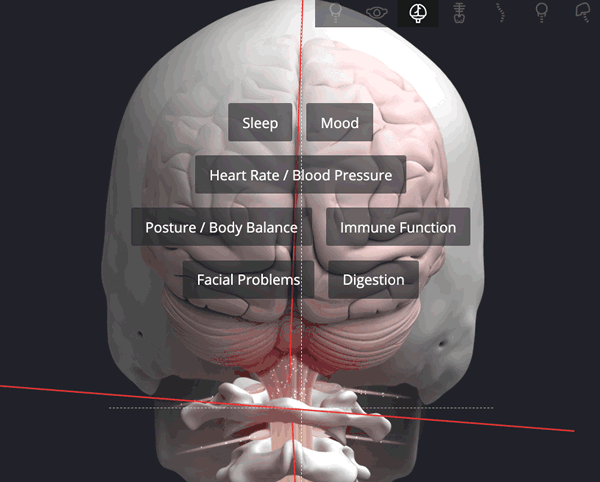What is Meniere’s Disease?
Meniere’s Disease is a disorder of the inner ear that affects balance and/or hearing and often has no cure. It affects over one million people within the United States alone and is more common in women than men and typically first manifests between ages 20-40 years old. It typically manifests as sporadic, sudden episodes of vertigo (spinning sensation), lasting 20 minutes or so and resolving spontaneously within several hours or days. Contact us today, if you’re suffering from Meniere’s.

What Are the Symptoms of Meniere’s?
Common symptoms of Meniere’s include tinnitus (commonly called “ringing in the ears”), muffled hearing or the sensation that one’s hearing has been blocked, and a feeling of congestion, fullness, or pressure in the affected ear. Most often, Meniere’s involves only one ear, but in about 15 percent of people with the disorder, both ears are involved. A particularly disabling symptom of Meniere’s, which is experienced by only some, is a sudden fall that may occur without warning and without any loss of consciousness. Typically, the individual also remembers the event. It’s uncertain what percentage of people with Meniere’s experience drop attacks, but a study published in the Journal of Vestibular Research in 2018 found that 49 percent of the 602 people with Meniere’s surveyed experienced drop attacks that lasted anywhere between a few seconds to a few minutes. The origin remains unknown but it is likely to be multifactorial. A combination of genetic predisposition, viral infections, allergies, and endocrine disorders such as hypothyroidism, arterial hypertension, hypotension, and/or trauma to the head have been implicated as triggering factors for Meniere’s attack.

How Can Chiropractic Help?
Chiropractic care can help with Meniere’s disease by treating the body as a whole, especially the spine. The atlas vertebrae can affect the nerves that control the inner ear’s function. According to the American Chiropractic Association, “Chiropractors do treat vertigo and dizziness with great success.” Chiropractic care for Meniere’s disease has been noted by some Meniere’s patients as being more effective than commonly prescribed medications such as meclizine and scopolamine. The International Upper Cervical Chiropractic Association (IUCAC) describes how Meniere’s disease is sometimes related to upper neck trauma where misalignment of the atlas vertebra leads to pressure on the inner ear. Upper cervical chiropractic care is shown to correct misalignments in the upper neck and thereby maximize hearing and lessen vertigo
Wait, what is Upper Cervical chiropractic care?

Koru Chiropractic, in Louisville Colorado, helps with upper cervical chiropractic care and recognizes the unique and important relationship that the atlas vertebrae and the brainstem have. The anatomy of the brainstem includes the meninges, the meningeal arteries and veins, cranial nerves, cerebrospinal fluid (CSF) spaces, and the meningeal sac. The meninges are a set of membranes that cover the brain and spinal cord. The meninges help to protect the brain from the skull. They also house blood vessels that supply oxygen-rich blood to the brain. Several meningeal arteries support this flow of life-giving nutrients. Meningeal veins collect deoxygenated blood and drain it back into the systemic circulation. The atlas vertebrae affect the brainstem by specifically controlling meningeal arterial blood flow to the meninges. Therefore, spinal misalignments at the level of the atlas vertebrae can affect meningeal arteries and meningeal blood flow. This is important because meningeal blood flow affects Meniere’s disease symptoms. Inflammation causes meningeal arteries to constrict or narrow, reducing meningeal blood flow. The body tries to reduce this inflammatory response by increasing vascular permeability so fluid leaks out of capillaries into surrounding tissue(lymphatic vessels). The brain parenchyma swells because it’s in a confined space process called vasogenic edema. Reduction in meningeal arterial blood flow due to misaligned vertebrae can be addressed through upper cervical chiropractic care. The gentle adjustments done using NUCCA chiropractic can help Meniere’s disease patients by relieving pressure and reducing meningeal edema.
Cranial nerves play important roles in hearing, equilibrium control, facial sensation, vision, taste, salivation, swallowing, facial expression, and chewing. Upper cervical chiropractic care has been shown to help with Meniere’s Disease as it can improve the function of cranial nerves VII and VIII by removing any interference (subluxation) within the upper cervical spine as well as decreasing inflammation.
Cranial nerve VIII, also known as the vestibulocochlear nerve, is responsible for hearing and equilibrium. Both these functions mainly originate from one area called the vestibular apparatus or labyrinth located within the middle ear.

 Reviews
Reviews